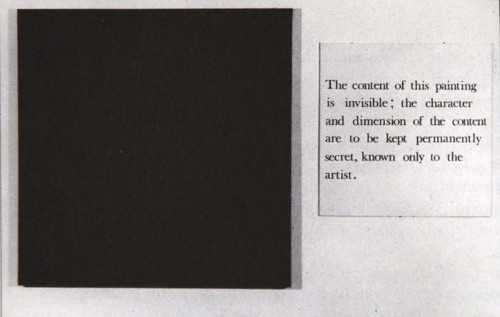
Thursday, February 17, 2011
Tolstoy's views
Our disscusions in class made me understand Tolstoy's views in greater depth. In his opinion if the artist did not convey the emotion in which the painting was originally made to convey then it was a failure in the art community. In my opinion this view holds the artist in full responcibilty rather than distibuting the failure/ success of the art equally on the artist as well as the audience. No two people can experience the same emotions from a painting, a persons happiness may be greater than another person's all though they are both feeling happiness. Therefore as someone mentioned in class, a spectrum of emotion would be more appropriate than just one general emotion. Tolstoy in my eyes was trying to dictate what art should or should not be art by being highly detailed in his views of what art is. His views show that he is trying to place boundaries on many modern art forms. Such as body art, tatooing an such art forms that werent widely recognized in his time.As you may tell I have a very strong opinion on what I believe is art, and it seems as if Tolstoy is excluding many art forms that have impacted many people although each person may have viewed the art piece differently. Art in my opinion is an artists attempt to show us the inner workings of their mind as well as their emotions, no one painting can convey their exact emotion due to the fact that at the time they may have felt many emotions, some that no matter how many people view the piece of art all the emotions will never be truly portrayed. Art to me is emotions, its an artists soul on canvas. How can an artist fail at portraying what they feel?
Thursday, February 3, 2011
Plato and his views.
Plato’s claim that art is an “imitation of an imitation” in my opinion, its significance is truly one to be interpreted by all those who have the chance of reading it. Plato believed that art was an imitation of an imitation of an original form. Many people who have the views of mathematicians such as Plato believe that all art is just different forms, therefore they believe that art is somewhat pointless and is just imitations of another imitation. Plato's views in my opinion take away from the true meaning of a piece of art by making its significance somewhat pointless and its meaning worthless. I am not fond of his views but I do understand why his opinions and views may be viewed as meaningful, he does make a good point or two. Overall, Plato's views are that of a true skeptic, history has taught many that the way people view art and its significance has changed overtime, making many more openminded towards the world of art. I wrote on my Q&A a question that truly has been haunting me since I read Plato's views.
Is art truly imitation or is it truly the artist’s interpretation?
How can one view art philosophically?
Philosophy can be defined in many ways, in my opinion it all depends on who you ask and what their views are. It is said that philosophy is a way to think about a topic open mindedly and critically, without subjecting yourself to bias. I believe that in this century many of the bias that we have acquired are due to what we have be taught. So therefore in order to view art philosophically we have to push aside those views and become more open minded. I know this may be hard for many of you out there but trust me it can be done. Anyways, overall in my opinion viewing art philosophically is a way for one to take all views and opinions on a certain work of art and analyze them, and then truly understand the purpose and meaning of the work of art that was produced. So I pose this question, Without a philosophical view on art how would the art world be interpreted by those who are truly ignorant to its purpose?
Subscribe to:
Posts (Atom)